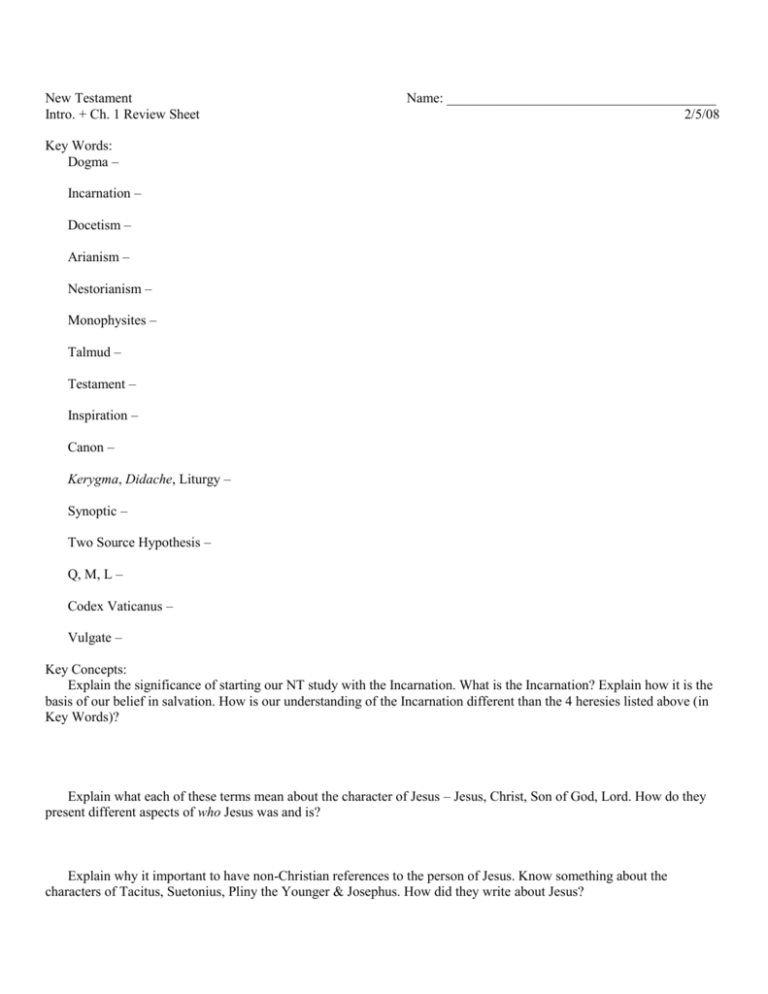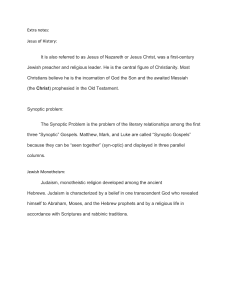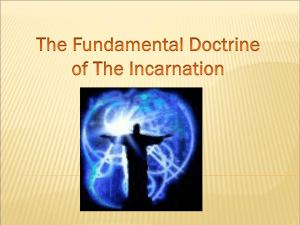Ch. 1 Review Sheet (place)
advertisement

New Testament Intro. + Ch. 1 Review Sheet Name: _______________________________________ 2/5/08 Key Words: Dogma – Incarnation – Docetism – Arianism – Nestorianism – Monophysites – Talmud – Testament – Inspiration – Canon – Kerygma, Didache, Liturgy – Synoptic – Two Source Hypothesis – Q, M, L – Codex Vaticanus – Vulgate – Key Concepts: Explain the significance of starting our NT study with the Incarnation. What is the Incarnation? Explain how it is the basis of our belief in salvation. How is our understanding of the Incarnation different than the 4 heresies listed above (in Key Words)? Explain what each of these terms mean about the character of Jesus – Jesus, Christ, Son of God, Lord. How do they present different aspects of who Jesus was and is? Explain why it important to have non-Christian references to the person of Jesus. Know something about the characters of Tacitus, Suetonius, Pliny the Younger & Josephus. How did they write about Jesus? Know details about the New Testament… Structure? Number of Books? When was it written? Etc. How does the NT flow out of Jer 31:31 and the OT? How many books are in the Canon (OT & NT)? LIST the 3 criteria for acceptance into the Canon. LIST the 3 stages of the gospel formation. Why did the gospels take so long to develop? What were the early written materials used by the Church? What were the 3 reasons that oral traditions finally needed to be written down? What method do biblical scholars use to dissect the Bible? What are the 5 categories within this method (Perhaps you should expect a matching section about these 5 categories…) Explain the Synoptic Problem and how the Two Source Hypothesis postulates a logical answer. What are the 2 main sources? Which is the narrative source and which is the sayings source? How are they used by Mt and Lk? Be able to correctly diagram the relationship between the 3 synoptic gospels. Explain the 2 main goals of Historical Criticism. What are some techniques that identify if a passage came from JC? Explain and provide examples. What does Form Criticism focus on, and why is it important for us when we read? Explain how the audiences of the evangelists might affect their editorial slant. Expect to see the Redaction Chart on the test; be able to fill in the blanks. What does Textual Criticism focus on? What do we learn about the copies of texts from these studies? What are our main translations (oldest Greek? into Latin? into English?)











